Murdoch's Sky deal faces hurdles but share price rises
Today's announcement by the Culture Secretary could prolong a final decision until next summer
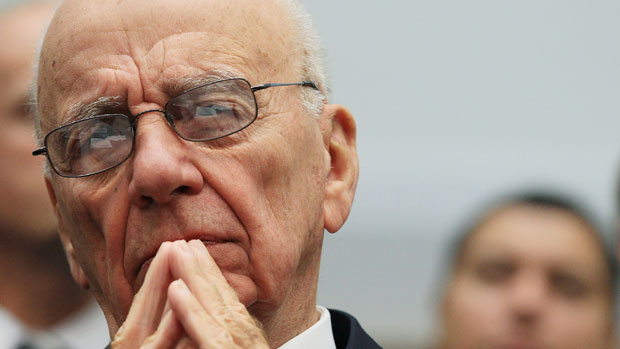
A free daily email with the biggest news stories of the day – and the best features from TheWeek.com
You are now subscribed
Your newsletter sign-up was successful
A controversial attempt by the Murdoch family to consolidate Sky fully within its media empire could face more hurdles.
Culture Secretary Karen Bradley announced today that she is "minded" to refer the £11.7bn deal to competition regulators for a fully-fledged enquiry over concerns that it threatens media plurality.
Her concerns are based on an initial review of the transaction by the media regulator Ofcom – but crucially the watchdog cleared the Murdoch's 21st Century Fox of claims that it is not a "fit and proper" operator to hold a broadcast licence.
The Week
Escape your echo chamber. Get the facts behind the news, plus analysis from multiple perspectives.

Sign up for The Week's Free Newsletters
From our morning news briefing to a weekly Good News Newsletter, get the best of The Week delivered directly to your inbox.
From our morning news briefing to a weekly Good News Newsletter, get the best of The Week delivered directly to your inbox.
Opposition MPs and market analysts are now confidently predicting that the deal will eventually go ahead. Sky's shares have risen by more than 3.5 per cent in response.
The deal will see Fox buy the 61 per cent of shares in Sky it does not already own in a deal that would value the broadcaster at close to £19bn.
But it would also mean the Murdoch family would own, through two companies, one of the main broadcast news networks in the country, Sky News, alongside The Sun, The Times and the Sunday Times newspapers, and the radio network Talksport.
Bradley has rejected one proposed solution that would have seen editorial oversight of Sky News transferred to an independent board.
A free daily email with the biggest news stories of the day – and the best features from TheWeek.com
She has, though, given Fox two weeks to come back with a revised proposal before making a final decision on whether to refer the buyout for a full investigation.
Analysts at Citi told Reuters: "Concerns about broadcasting standards would have been almost impossible to work around while we believe the groups will be able to offer concessions that adequately address concerns about plurality."
Tom Watson, the shadow culture secretary, said undertakings from the Murdoch family were "not worth the newsprint they are written on", according to the BBC.
Concerns over Fox's fitness to run a broadcaster were based on both the strong right wing bias of its news network in the US and allegations of workplace sexual and racial harassment at Fox News.
Issues of bias are less relevant in the UK where broadcasters are covered by stringent impartiality rules. Ofcom said it found no evidence top bosses were aware of the harassment claims.
Sky says that if the deal is referred for a full investigation it could delay the final verdict until next June.
Rupert Murdoch 'to get green light for Sky takeover'
7 April
Rupert Murdoch is set to be given permission to take full control of Sky without spinning out its news arm, according to reports.
Reuters quotes two people "familiar with the matter" as saying the European Commission will unconditionally approve the deal when it meets to make a formal decision later today.
Ofcom is also looking into the buyout after Culture Secretary Karen Bradley asked for a full review, including whether the Murdochs were "fit and proper" to hold Sky's broadcast licence after the phone hacking scandal in 2010.
But The Register speculates the UK regulator is "unlikely to contradict EU antitrust regulators".
If correct, it means the Murdochs, through 21st Century Fox, will be granted the right to buy the 61 per cent of Sky they do not already own.
The deal would be worth around £11.7bn, says The Independent, but it has attracted controversy amid claims it will harm media plurality as the Murdochs also own The Times, the Sunday Times and The Sun newspapers.
Fox's news reporting in the US, which would breach UK media regulations, has also been cited.
Shareholders had separately expressed concern at a deal being brokered by Fox when its chief executive, James Murdoch, is the chairman of the company being acquired as well.
The Murdochs argue that plurality concerns are not valid since the newspapers are part of a separate company, News UK, and the rise of Facebook and Google has changed the media landscape.
Murdoch to face 'fit and proper' test for Sky takeover
16 March
Attempt to take full control of broadcaster in 2010 failed, but the family says the market has changed
Rupert Murdoch's attempts to consolidate Sky within his media empire will have to face the full scrutiny of UK regulators, following a referral by Culture Secretary Karen Bradley.
She told parliament this afternoon that she has issued a European intervention notice on the grounds of "media plurality and commitment to broadcasting standards", says the Daily Telegraph.
This means the media watchdog, Ofcom, will conduct a 40-day review into whether the Murdoch's full ownership, through different companies, of Sky, The Times, The Sunday Times and The Sun newspapers, and the radio station Talksport, undermines media plurality.
At the same time it will be asked to review whether Fox, which is criticised for right-win bias in the US, is a "fit and proper" company to take over Sky's broadcasting licence, says The Guardian.
The notice also means that the Competition and Markets Authority will be drafted in to conduct its own concurrent inquiry into the competition aspects of the deal.
The Murdochs, through the now-defunct News Corporation business that at the time directly owned the family's UK newspaper assets, had sought to acquire the 61 per cent of Sky it does not already control in 2010.
But despite Ofcom saying the company would remain "fit and proper" to hold a broadcasting licence, the Guardian says [2] it raised concerns over then-chairman James Murdoch in the wake of the phone-hacking scandal at the News of the World.
After a huge political backlash and a fraught appearance in front of a parliamentary committee by James and his father Rupert, the deal was abandoned.
Since then the newspapers have been hived off into a new company, News UK, and the company's broadcasting and film production assets have been consolidated within Fox. It is bidding £11.7bn for the outstanding Sky stake.
The Murdochs believe the market has changed and the deal is now a fundamentally different proposition, not least because of the rise of the likes of Facebook and Google as news distributors.
James Murdoch, who was reappointed chairman of Sky in January last year, says a previous pledge to split off Sky News into an independent arm will not be needed this time around.
Opponents, however, continue to argue that the family will have too much control over news media in the UK.
Sky agrees £18.5bn Fox takeover - but it may still be blocked
16 December 2016
Sky has accepted yesterday's formal £18.5bn takeover bid from 21st Century Fox, despite concerns the deal will give Rupert Murdoch excessive influence over UK media.
Fox already controls 39 per cent of Sky and the tie-up, which will give Murdoch full control, "will face scrutiny by European competition watchdogs and could also be referred to British authorities to examine its impact on media plurality", says the Daily Telegraph.
In a bid to address these concerns, the Murdoch family has made promises on jobs and investment, including a pledge to spend £700m annually on UK production - although these are not legally binding.
Fox also sought to assuage fears Sky News could become more like its partisan US channel Fox News.
"Fox will continue to broadcast news under the Sky brand maintaining its excellent record of compliance with the Ofcom Broadcasting Code," said a spokesman.
Labour's deputy leader Tom Watson, along with other politicians from across the political spectrum, has urged the Culture Secretary Karen Bradley to refer the deal to Ofcom.
Bradley now has ten days to decide whether the Fox bid raises public interest concerns about media plurality.
In addition, a number of Sky shareholders, including Standard Life Investments and Jupiter Asset Management, "have questioned the independence of the non-executive directors and their ability to extract a higher price since a possible bid was announced last Friday", says the BBC.
Those investors believe Sky's share price is currently depressed and that the offer price of £10.75 a share, its level last February, is too low.
There are also concerns over a conflict of interest in management, as Murdoch's son James is both chief executive of Fox and, since January, chairman of Sky.
Murdoch's Fox 'to make formal offer for Sky today'
15 December
21st Century Fox, Rupert Murdoch's TV and film business, is to formalise its offer to buy all of Sky as soon as today, reports City AM.
A deal was informally agreed last Friday, with Fox paying £10.75 per share for the 61 per cent of the broadcaster it does not already own, valuing Sky at £18.5bn.
Murdoch is "is not expected to stray" from that price, which represents a 28 per cent premium to the 836p at which Sky's shares were trading immediately before news of the deal emerged.
However, Standard Life Investments, one of Sky's fund manager shareholders, told The Times the loss-making company's stock was "clearly at a low ebb" and the proposed merger is "not a good deal".
Along with several other institutional investors, it wants independent directors to push for a higher offer.
If the two companies go ahead with their planned scheme of arrangement, independent shareholders would need to approve the deal by a margin of 3-1 and such opposition could yet scupper the tie-up.
There are also concerns over a perceived conflict of interest for Fox chief executive James Murdoch, who is also the chairman of Sky.
One top 20 investor told the Times: "The question for us is not necessarily the price at this point; for us it is more that we want to be assured that the process itself is independent."
Once the deal is formalised, the government will have ten days to decide whether to refer it to the broadcasting regulator, Ofcom, which poses another risk to the transaction.
A planned buyout of Sky by Murdoch-owned News International in 2011 was abandoned over fears about the damage it would do to media plurality and the fallout from the phone hacking scandal.
Fox believes things have changed since then, not least because it has separated from Murdoch's newspaper business, which owns the Times, the Sunday Times and the Sun.
Why Murdoch won't offer Sky News as a 'regulatory pawn'
14 December
Rupert Murdoch's 21st Century Fox is "not expected to offer Sky News as a regulatory pawn" in order to secure a planned £18.5bn merger.
Fox is planning to buy the 61 per cent of Sky that it doesn't already own in a revival of plans to consolidate assets in the Murdoch empire that were abandoned back in 2011.
Back then, after the then Business Secretary Vince Cable announced a public interest test to defend media plurality, Murdoch said he would spin out Sky News as a separate entity with its own editorial board.
"However, it is understood that Fox believes that the industry landscape has changed significantly since then and that there should be less concern over the impact of a deal on the diversity of viewpoints across the media," says The Guardian.
In 2011, "the Murdoch vehicle bidding for Sky was the now defunct News Corporation", which owned both the TV and film producer Fox and newspapers that included The Times, the Sunday Times, the Sun and the now-closed News of the World.
Since then, Fox and the Murdoch newspaper business, rebranded as News UK, have been formally split.
Other media sources have also entered the game. "The digital revolution has seen huge growth from Murdoch's traditional publishing rivals, coupled with the rise of newer players such as Google and Facebook as distributors of news", says the Guardian.
Politicians from across the spectrum want to see the deal referred to the broadcasting regulator Ofcom.
Investors have also raised concerns over the merger of Sky News into a business that controls Fox News, the right-wing network that has proved controversial in the US over its editorial bias and accuracy.
Sky shareholder the Local Authority Pension Fund said: "Any recommendation… would have to be based on an appropriate premium as well as safeguards for future probity given the past track records of the businesses controlled by the Murdochs".
The main concern for investors is that Fox, which is controlled by Rupert's son James Murdoch, who is also the chairman of Sky, is underpaying for the business./p>
Sky buyout: Is Fox takeover likely to be blocked by Ofcom?
13 December
MPs from across both sides of the House of Commons are urging the government to refer 21st Century Fox's proposed £18.5bn takeover of Sky to broadcasting regulator Ofcom.
Fox, the TV and film conglomerate owned by Rupert Murdoch, already controls a 39 per cent stake in the broadcaster. It is run by his son James, who has been chairman of Sky since January.
This is why the deal is controversial and why it was effectively blocked when it was last mooted in 2011.
Former culture secretary John Whittingdale, who welcomes the deal, told The Guardian he would be "astonished" if it was not referred to the watchdog.
He said: "It will need to get looked at by Ofcom but the competition in that sector has increased since the last time it was looked at. I can't see really where the objection lies."
Media plurality concerns may have dissipated in the past five years as Fox and News Corporation, the Murdoch global newspapers business, have been formally separated, says Martin Flanagan in The Scotsman.
"In addition, many more people now use the internet for news… than mainline and paid-for TV and newspaper journalism."
Whittingdale also said that a "solution was found last time", referring to the public interest test set out by former business secretary Vince Cable that prompted Sky to pledge to hive off its news outlet into a separate entity with its own editorial board.
But after the outcry over phone hacking which brought down the Murdoch-owned News of the World newspaper, parliament passed a motion against the deal and it was abandoned.
MPs including Whittingdale and former Labour leader Ed Miliband have called for the deal to be referred to Ofcom.
The government has confirmed that Culture Secretary Karen Bradley will make a formal decision within ten days.
Meanwhile, Sky and Fox are seeking to "fast-track" the transaction, says the Financial Times, and trying to obtain approval in the High Court for a "scheme of arrangement", as opposed to a drawn-out offer process.
The scheme would need 75 per cent approval from independent shareholders in order to force all others to sell.
Here's the potential stumbling block: a number of investors, including Jupiter Asset Management, Royal London and Standard Life, believe the deal undervalues Sky and that James Murdoch's role presents a conflict of interest.
Backlash over Murdoch's £18.5bn bid for Sky
12 December
A former chairman of the BBC has joined calls urging the Prime Minister to resist Rupert Murdoch's bid to take over Sky.
Sir Michael Lyons, who repeatedly clashed with the businessman over media ownership during his time with the BBC Trust, has said the government should apply the "fit and proper person" test to the proposed deal.
Murdoch's 21st Century Fox announced on Friday it had struck a preliminary deal to buy the remaining 61 per cent of Sky it does not already own.
The move has been expected ever since his son, James, was appointed chairman of Sky in January.
It has long been a goal of the Murdoch family to bring the broadcaster back fully under the control of its media empire. An attempt to do so in 2011 was abandoned following the phone-hacking scandal that led to the closure of the Murdoch-owned News of the World newspaper and the trials of executives Rebecca Brooks and Andy Coulson, among others.
That proposed merger was already controversial and Sky had been forced to agree to spin out its news network with an independent editorial board to maintain distance from Murdoch's newspaper titles.
Culture Secretary Karen Bradley now has ten days to decide whether to intervene over "concerns on the concentration of media power and whether Fox is committed to standards such as accuracy and impartial news coverage", says The Guardian.
Fox's news network in The US is unashamedly right-wing and is often criticised for allegedly biased and inaccurate reporting.
Former business secretary Vince Cable, who blocked the first takeover bid five years ago, and former Labour leader Ed Miliband have both said the deal should be investigated by Ofcom, while shadow culture, media and sport secretary Tom Watson says Theresa May should come clean about "whether the possibility of a bid being made was discussed at the meeting she had with Rupert Murdoch during her flying visit to New York in September".
There's also anger among investors that James Murdoch is chairman and chief executive of the businesses on both sides of the transaction, while some argue the £18.5bn deal undervalues the company.
The Daily Telegraph reports "Sky is facing a shareholder backlash over its decision to wave through the new takeover approach".
According to the BBC, pressure is mounting on independent directors such as deputy chairman Martin Gilbert, who is also the chief executive of Aberdeen Asset Management, to push for a higher buyout price.
Sky re-appoints Murdoch - is a sale to Fox in the offing?
29 January
James Murdoch, the son of media mogul Rupert, has been re-appointed chairman of British satellite broadcaster Sky. The move comes nearly four years after he resigned from the role in the then BSkyB amid the fallout from the News of the World phone-hacking scandal.
It means that two of the Murdoch media empire's executives at the centre of the storm have returned to the positions they were forced to relinquish. Last year, Rebekah Brooks was re-appointed to lead Rupert Murdoch's UK newspaper publisher, now called News UK, having been cleared of wrongdoing in relation to the illegal activities that led to the downfall of the News of the World.
"It's like [Rupert] Murdoch's getting the band back together, it's as if nothing ever happened at all," a former executive told Reuters.
Murdoch's return will also rekindle rumours of a buyout of Sky by US film and television giant Fox, of which he is also chief executive. Fox is one of two publicly listed entities created from the bifurcation of the old News Corporation, which had been set to buy BSkyB before the political backlash to the hacking scandal caused it to abandon the plans.
Fox now owns the near 40 per cent stake in Sky that News Corporation had owned. Since that deal was abandoned, Sky's UK arm has merged with its sister businesses in Germany and Italy to create a consolidated European broadcaster.
Sources close to Murdoch believe the aborted buyout represents "unfinished business", says the BBC's Kamal Ahmed. Last year, he himself was quoted as saying that "having 40 per cent of an unconsolidated asset is not an end state that is natural for us".
Ahmed adds that even if a formal buyout does not materialise, the opportunities presented for a tie-up between the businesses is huge.
"Value in the world of television and film is now seen to emanate from the ownership of content. And the greater your global reach, the more powerful you can become," he writes. "Murdoch's new role means he will have greater oversight over how Fox (an American business) and Sky (European) can create value from the content they create."
The appointment was announced alongside half-year results that showed Sky added 337,000 new customers over just three months and boosted profits by 12 per cent for the six months to December. Its shares were 2.5 per cent up this afternoon to 1,067p.
Sky faces Ofcom probe over cancellation claims
7 August 2015
Sky is being investigated by communications regulator Ofcom over claims it makes it difficult for customers to cancel their services and does not properly disclose the process for leaving.
The Daily Telegraph, which has published articles over the past year highlighting claims from disgruntled subscribers, says the investigation will consider whether Sky "breached its obligations to ensure that contract termination procedures do not act as a disincentive for customers to change provider".
It cites allegations the company's contracts had stated cancellation is possible through a number of routes including letter or email, but that in practice it demanded any request is confirmed on the telephone. It has highlighted individual cases from subscribers saying they had to "endure calls lasting up to two hours and were still prevented from cancelling".
The Daily Mail says Ofcom could not give a timetable for the investigation but said "such probes can often last between six and nine months". It notes the regulator "cannot investigate individual complaints" but had launched the probe after "looking at patterns in complaints" as part of a wider review of practices in this area.
In June, the Financial Times reported the watchdog was to "start a new monitoring and enforcement programme" to analyse cancellation arrangements and the "impact these have on customers’ ability to exit contracts quickly, conveniently and without error".
It is part of a series of measures, including attempts to enforce a new code of practice requiring broadband firms to allow people to exit their contract if connection drop below "acceptable" levels.
Sky said in a statement it would "work closely with Ofcom to help them with their investigation". The provider, which the Mail says launched a review into its cancellation policies last year, also cited improving new subscriber numbers and said it is "committed to delivering the best service in the country".
Sky finds its limits as growth cools
29 July
by Tom Sieber, Shares magazine
Shares in pay-TV broadcaster Sky are trading within touching distance of multi-year highs. The company has proved exceptionally successful at capturing millions of UK households with its so-called "triple play" offering of landline, broadband and television services.
The problem now faced by management is how they continue to deliver growth. Sky increasingly looks to be a victim of its own success in a competitive UK market. BT's attempts to regain market share have led to a costly battle to screen live Premier League and Champions League football and there are fears that Sky may have reached saturation point in the UK.
This helps explain a £7.4 billion move to consolidate its European sister companies Sky Italia and Sky Deutschland in October 2014 – with both Italy and Germany enjoying lower levels of pay-TV penetration and cheaper domestic football rights to boot. The drawback to this big strategic move is that it has involved loading the balance sheet up with a lot more debt.
One avenue for further expansion is to add mobile to the mix so it can offer what has been dubbed a "quad play" service (mobile, landline, broadband and television). In January 2015 Sky agreed a deal with O2's Spanish parent Telefonica to launch a mobile service in the UK in 2016. The rationale is fairly clear: customers benefit from having a single provider and a single invoice and Sky can achieve marginal efficiencies on billing and secure another source of income from customers.
Another way the business is looking to add more viewers is through its Now TV video-on-demand platform. Some in the analyst community have questioned whether a reduction in the level of detail in which key performance indicators (KPIs) are reported is an indication that traditional pay-TV subscribers are being replaced with occasional users of Now TV. The latter could be considered lower quality customers as they provide a less predictable revenue stream.
Responding to third quarter results covering the three months to 31 March 2015, investment bank Liberum noted that average revenue per user was up by only £1 in the UK and Ireland over the past seven quarters to £47, was flat in Italy over the same timeframe at €43 and was down €1 in Germany and Austria at €35. It suggested that this could be a sign that "the quality of the subscriber base is under pressure".
Despite these growing pains, Sky is regularly the subject of M&A rumours. Media speculation in June 2015 suggests the powerful Murdoch dynasty turned down two offers in the last two years from French media group Vivendi and mobile telecoms firm Vodafone for Twentieth Century Fox's 39 per cent stake in the business.
According to the reports they were holding out for £18 per share. Although the Murdochs have been linked with a move to take Sky private it would be difficult to justify buying out the company for less than this hefty premium, never mind the political complications which thwarted a similar bid in 2011.
Video: Sky's CFO discusses the company's prospects
[[{"type":"media","view_mode":"content_original","fid":"83492","attributes":{"class":"media-image"}}]]

-
 The Week Unwrapped: Have televised confessions quelled protests in Iran?
The Week Unwrapped: Have televised confessions quelled protests in Iran?Podcast Plus, why has Elon Musk turned from Mars to the Moon? And will the BBC prove to be a puzzles champ?
-
 The week’s best photos
The week’s best photosIn Pictures An Andean god, a rogue squirrel, and more
-
 9 products to jazz up your letters and cards
9 products to jazz up your letters and cardsThe Week Recommends Get the write stuff
-
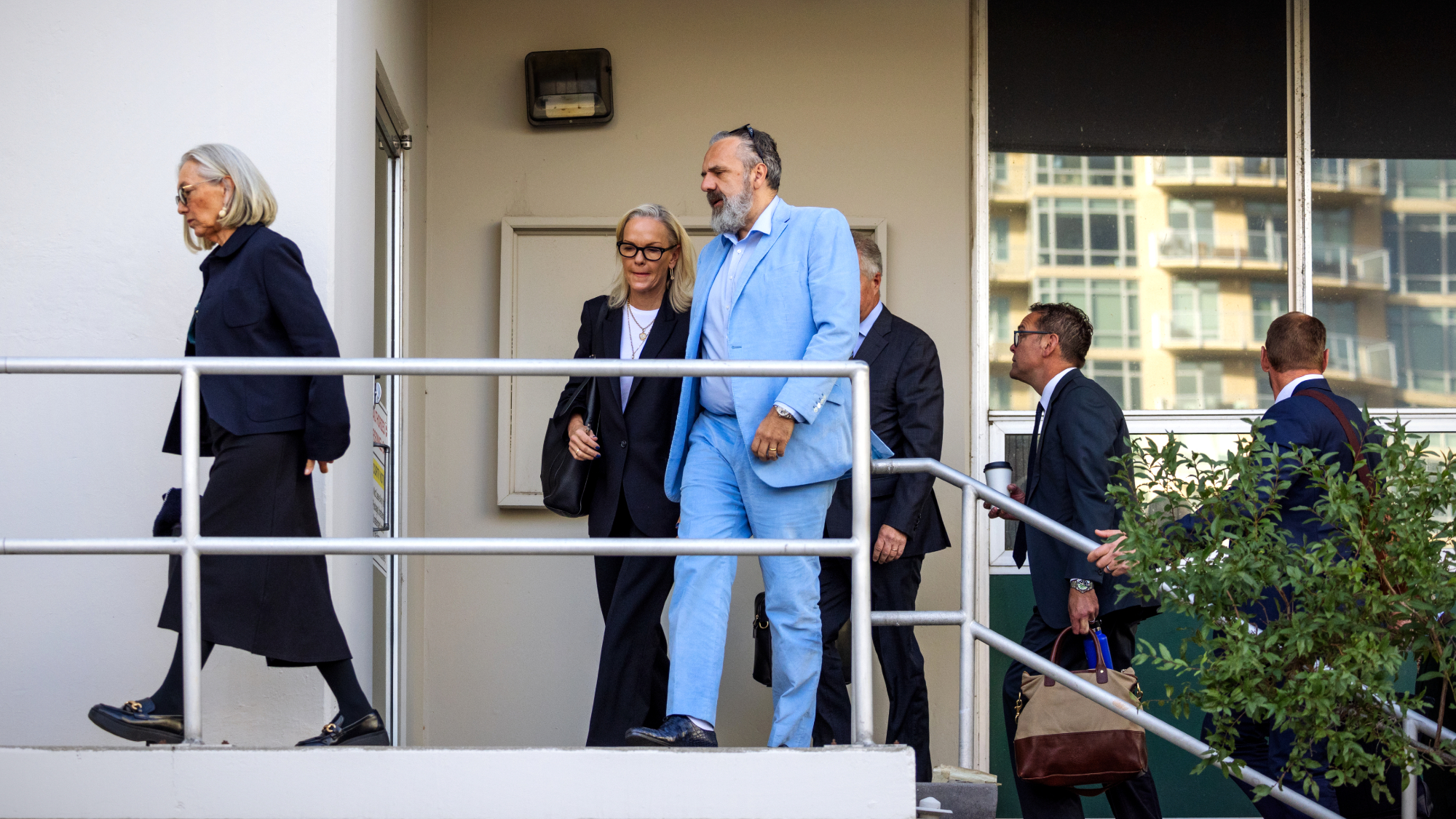 Rupert Murdoch's conservative son wins succession battle
Rupert Murdoch's conservative son wins succession battleSpeed Read Lachlan Murdoch will get control over the media empire that includes Fox News and The Wall Street Journal following his father's death, while his siblings will receive payouts
-
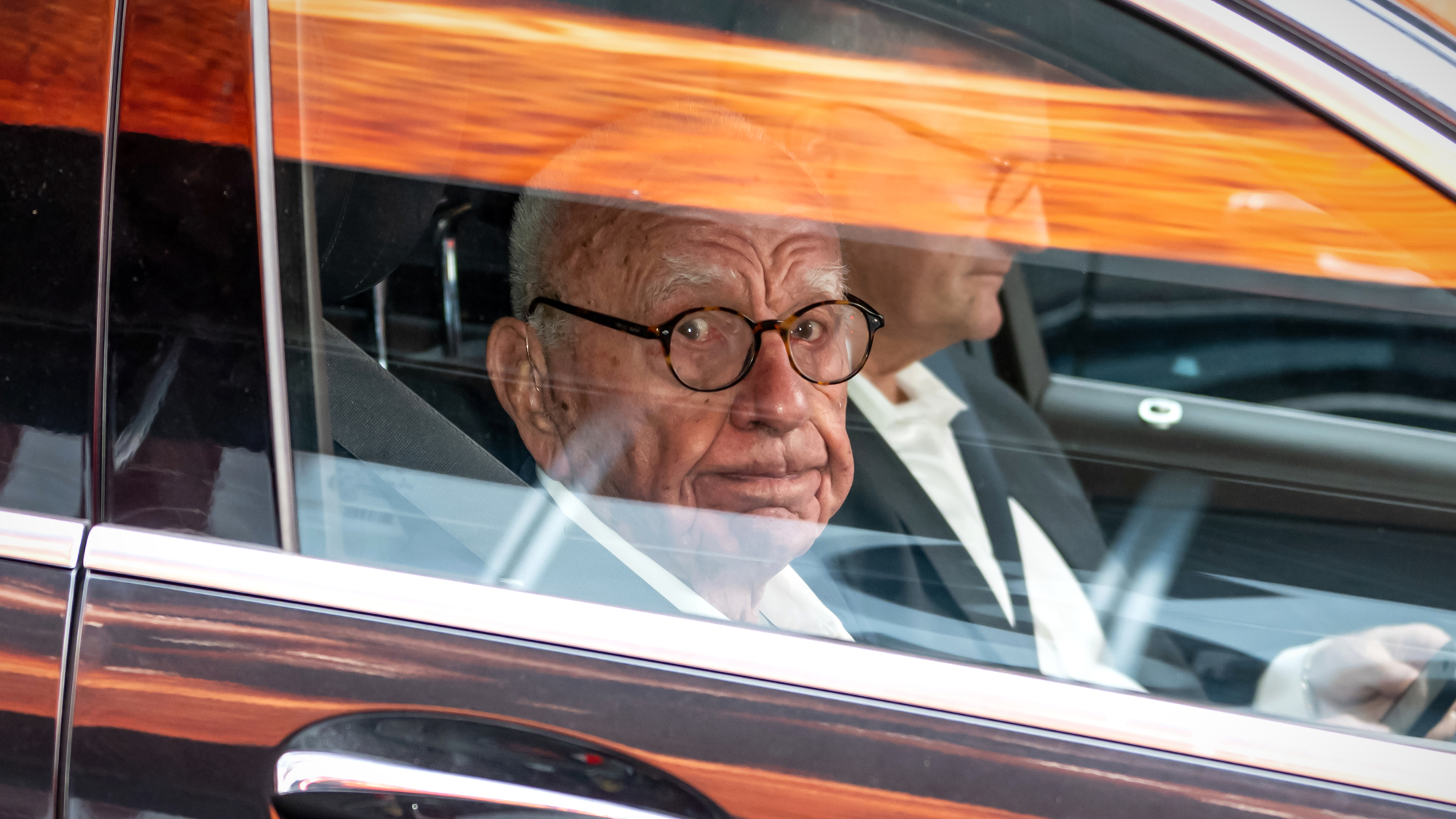 Rupert Murdoch loses 'Succession' court battle
Rupert Murdoch loses 'Succession' court battleSpeed Read Murdoch wanted to give full control of his empire to son Lachlan, ensuring Fox News' right-wing editorial slant
-
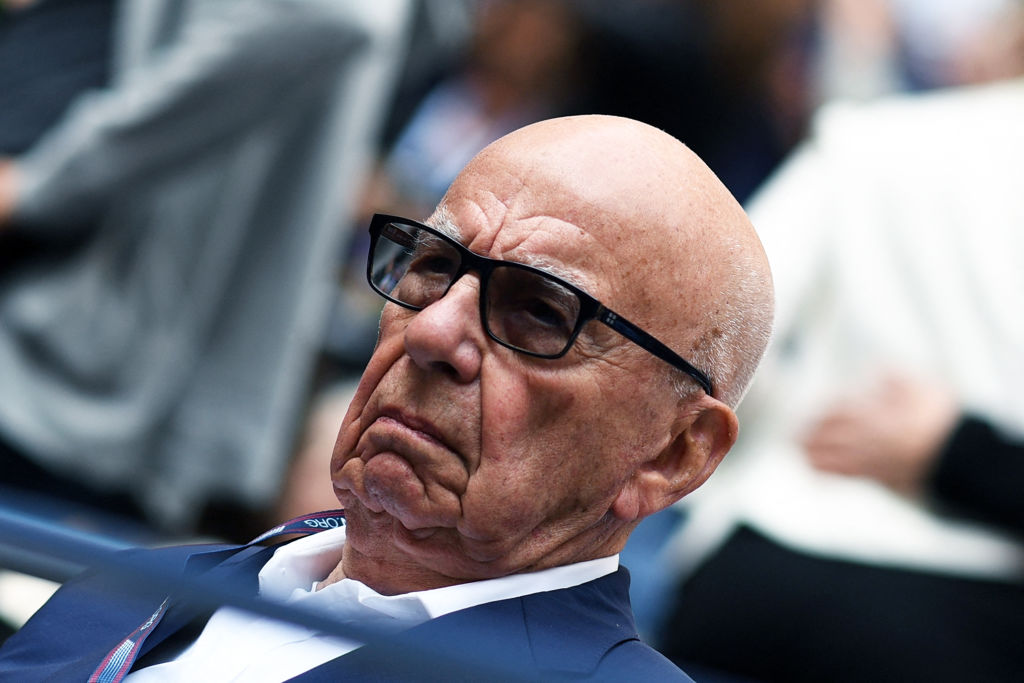 Rupert Murdoch steps aside at the empire he built
Rupert Murdoch steps aside at the empire he builtFeature The last of the old-style 'press barons' has retired. What is he leaving behind?
-
 Detroit: Auto workers’ strike puts Democrats in a bind
Detroit: Auto workers’ strike puts Democrats in a bindFeature President Biden will have to pick a side between the debate
-
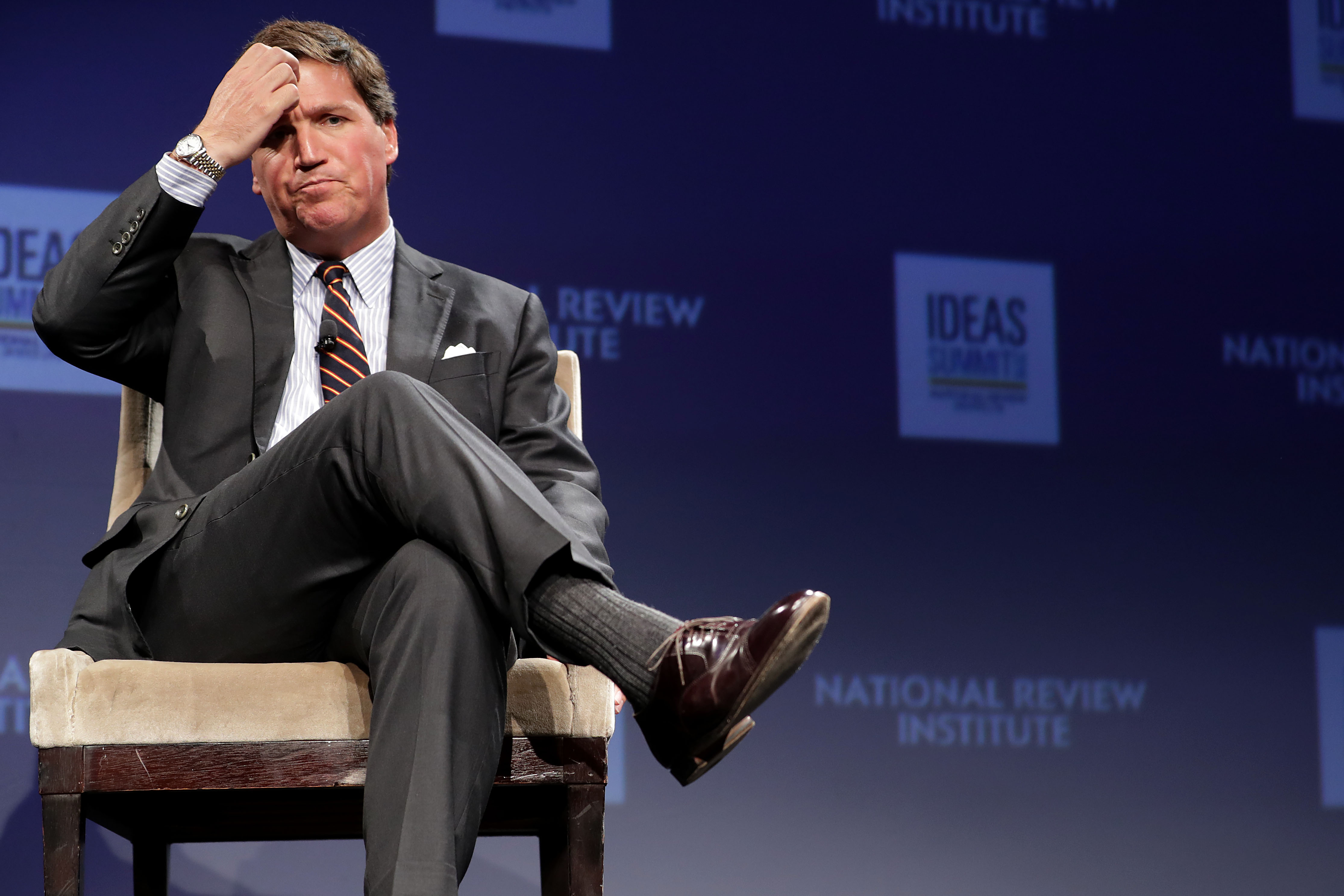 Why Tucker Carlson was fired from Fox News
Why Tucker Carlson was fired from Fox NewsUnder the Radar The top-rated Fox News host was dumped with little explanation, but both sides dropped hints through anonymous sources
-
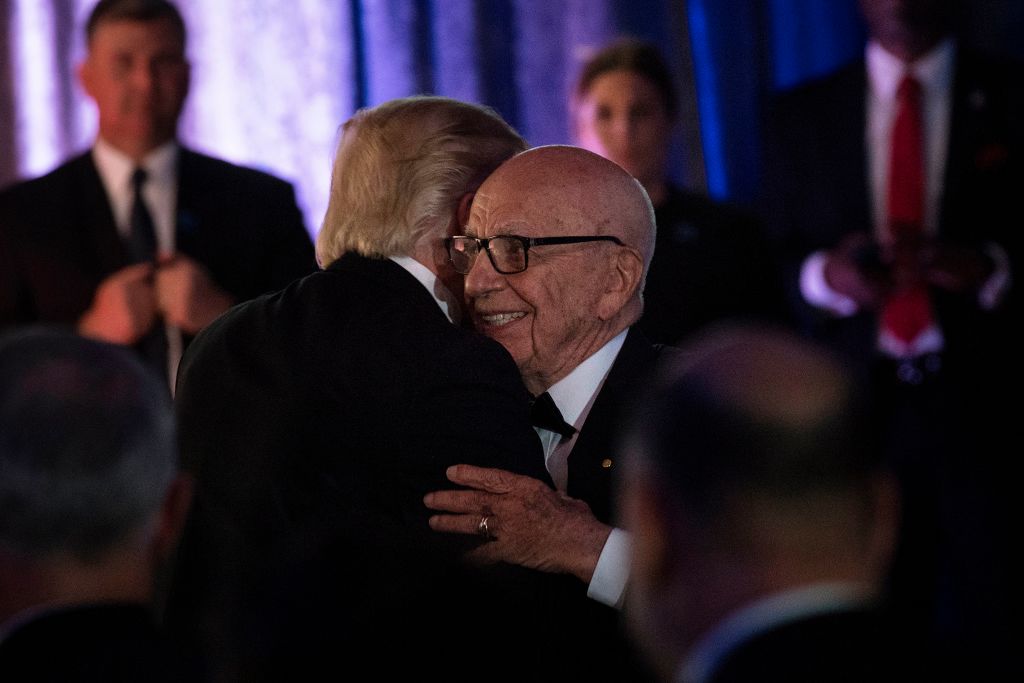 Rupert Murdoch reportedly 'thinks Trump is going to crash and burn' in November
Rupert Murdoch reportedly 'thinks Trump is going to crash and burn' in NovemberSpeed Read
-
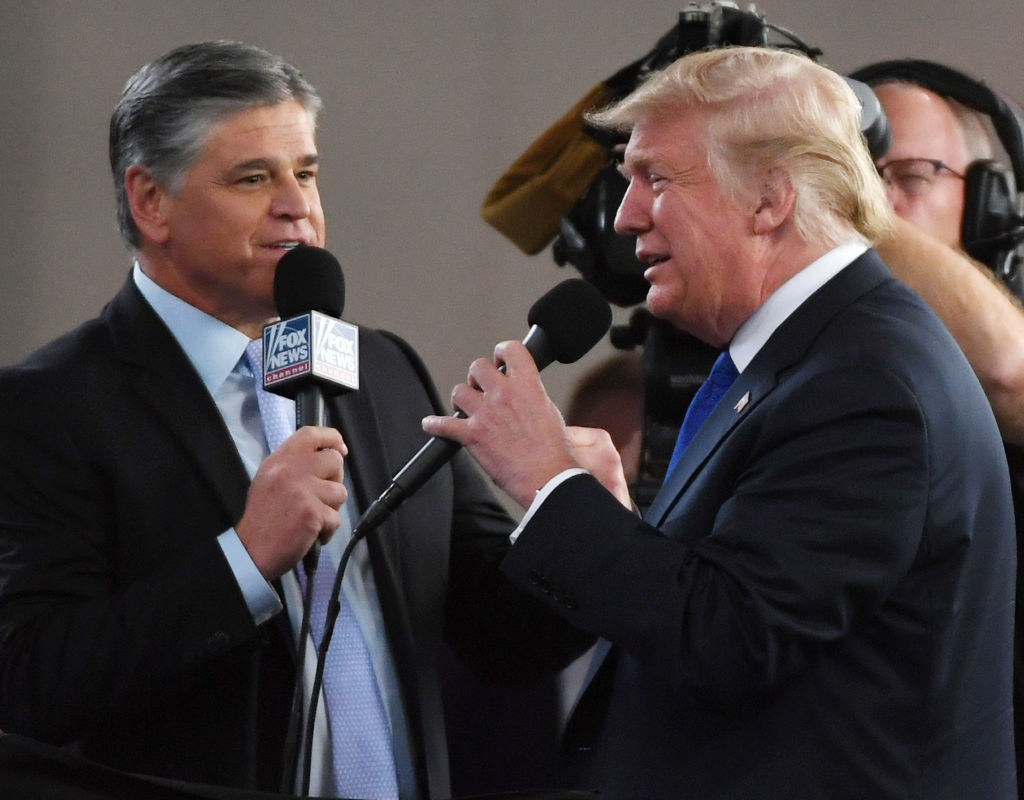 Fox News' Sean Hannity wing is apparently worried the Murdochs are dumping Trump
Fox News' Sean Hannity wing is apparently worried the Murdochs are dumping TrumpSpeed Read
-
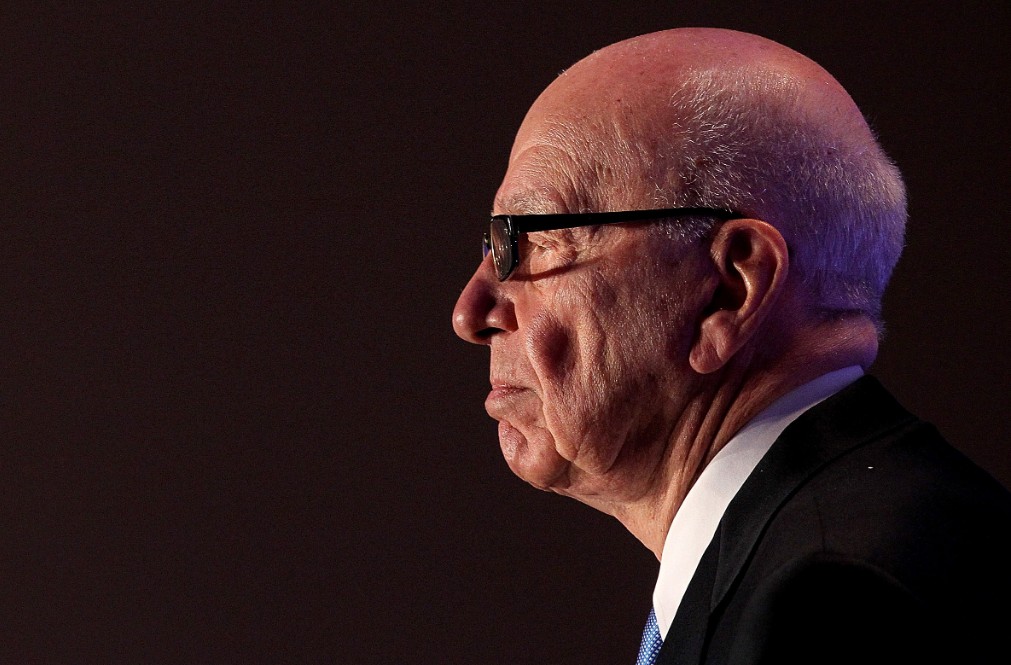 News Corp calls for Google to be broken up
News Corp calls for Google to be broken upSpeed Read Submission to Australia’s competition watchdog is latest salvo in battle between the media giants